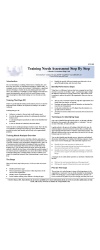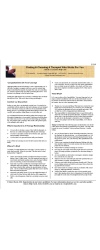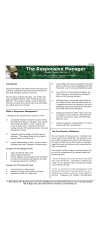Power of Language
Over time, the effectiveness of an apology has diminished, because in our society, an apology is often automatically offered without thought, without specifics and without reflection. The result is that often, when you apologize, and expect to have the other person react positively, that person doesn’t.
Part of the cause is a general cheapening of apology in our society. The other reason apologies don’t work as well or as powerfully as they might is that you aren’t doing them effectively. We’ll look at how to apologize below.
Apologies Work When…
They are offered sincerely, and not automatically. Some people apologize far too often, so when they really do feel bad, and express that feeling, the other person doesn’t “trust” the apology. Don’t over do it. Save apologies for situations where you feel sincere contrition.
They are specific. General apologies rarely work. When you apologize, state exactly what you are apologizing for. Just saying “I’m sorry”, is very weak because it doesn’t PROVE that you are sincere. Be specific: For example, “I’m sorry that I was late for the appointment“. In situations where you feel it’s a good idea to apologize, but you don’t know what exactly you’ve done to upset someone here’s how to handle it: “I’m sorry if I’ve done something to upset you. Could you help me understand by explaining exactly what i did?
They show some thought. If the other person sees your attempt as just an effort to fob off their concerns; i.e. if you offer it up too quickly or without an effort to understand, they’ll know you aren’t sincere. Slow down. Think. Apologize.
Apologies Do NOT Work When…
You’ve apologized for the same thing in the past, and then repeated the offence. You must match your actions with your words. A sincere apology means you commit to taking action so you will not repeat the problem. If you don’t change your behavior, the other person learns you apology means nothing.
Insincere Or Fake Apologies
If you apologize insincerely, or “fake it”, you are likely to create far more anger and aggression than if you said little. If you don’t feel apologetic, it comes through in your tone of voice, and body language. It’s hard to trick someone by offering up a fake apology particularly when that person knows you very well.
Not only does the other person devalue the apology, but it damages the relationship, since fake apologies erode trust in relationships.
Summary
- Apologize when you mean it and can commit to change for the future.
- Don’t over apologize for every little thing, because that devalues the apology in the future.
- Don’t fake it. If you don’t feel it, the other person will know, and you may be seen as lying, or manipulating.






